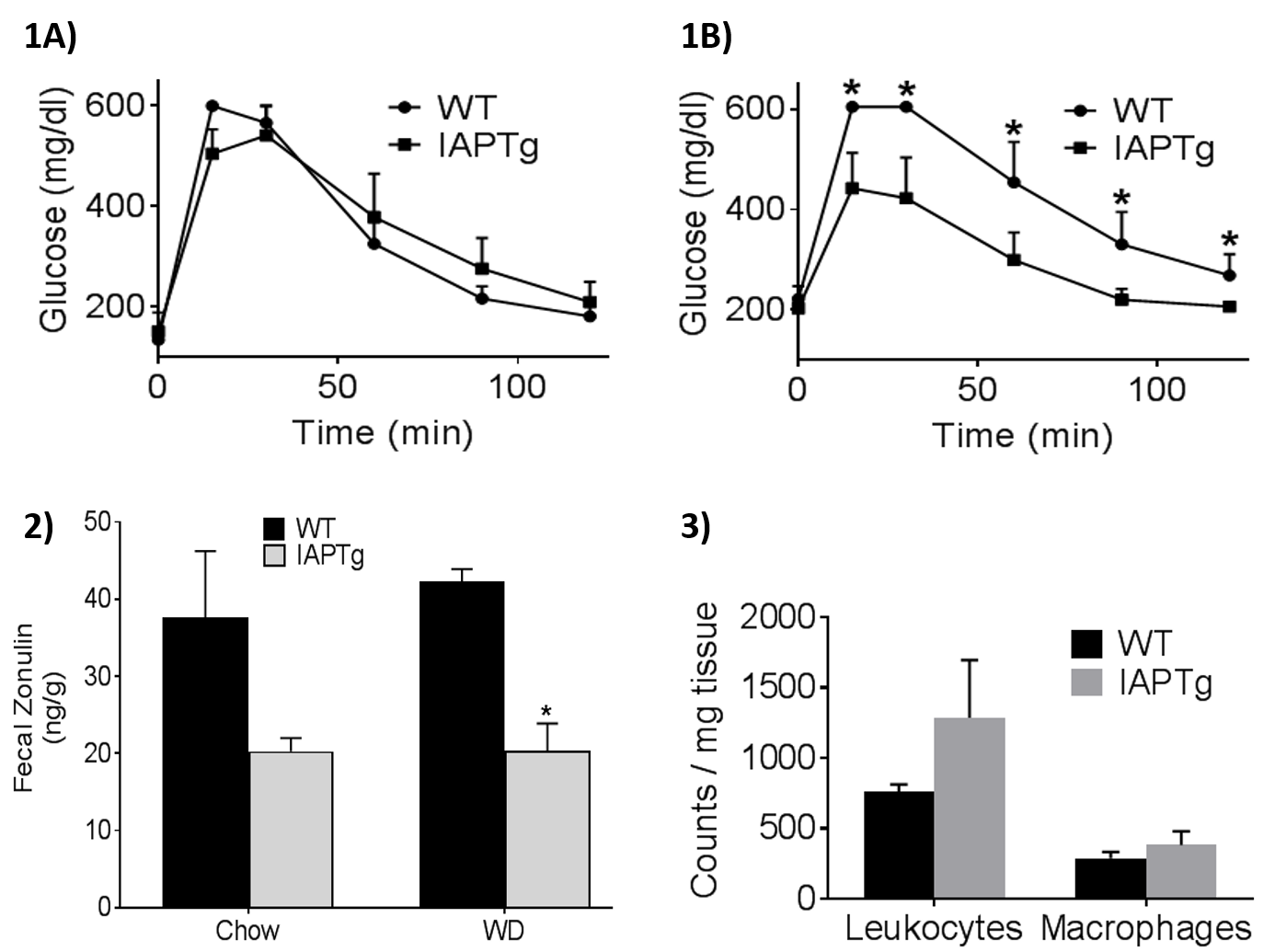Pharmacotherapy
IAP Transgenic Mice
Modulating the pathological processes of diseases
VCU researchers have developed a transgenic mouse model that can serve as a preclinical model for evaluating the role of the human chimeric intestinal alkaline phosphatase (IAP) in disease processes. IAP is known to detoxify the bacterial endotoxin lipopolysaccharide in the gut lumen. For people who consume high-fat and high-cholesterol based diets, IAP activity is significantly reduced. This reduced IAP expression is also seen in multiple pathological conditions such as diabetes, ulcerative colitis and inflammatory bowel disease. In studies attempting to demonstrate the protective role of IAP in preventing these diseases, intraduodenal administration is required. However, VCU’s developed mouse model eliminates the need for intraduodenal administration and allows for oral supplementation in the study of the protective role of IAP.
The technology
For evaluating the protective role of IAP, oral supplementation is problematic due to instability of the enzyme protein in the acidic environment of the stomach. These mice have a uniform expression of human chimeric IAP along the entire length of their gastrointestinal tract driven by a villin promoter. This overexpression allows researchers to directly examine the role of IAP in modulating multiple pathological processes, making it a suitable pre-clinical model for IAP evaluation. Figure 1: Data showing the importance of transgenic expression of IAP in mice with high-fat and high-cholesterol diets, also known as Western Diet (WD). Graphs 1A & 1B) Comparison of blood glucose levels over time in wild type and transgenic IAP mice after being chow fed (1A) and WD fed (1B); Graph 2) Fecal levels of zonulin demonstrating how transgenic IAP expression improves intestinal barrier function; Graph 3) Demonstration of how transgenic expression of IAP improves intestinal inflammation based on total number of CD45 + leukocytes and CD11b+ macrophages per mg of tissue.
Figure 1: Data showing the importance of transgenic expression of IAP in mice with high-fat and high-cholesterol diets, also known as Western Diet (WD). Graphs 1A & 1B) Comparison of blood glucose levels over time in wild type and transgenic IAP mice after being chow fed (1A) and WD fed (1B); Graph 2) Fecal levels of zonulin demonstrating how transgenic IAP expression improves intestinal barrier function; Graph 3) Demonstration of how transgenic expression of IAP improves intestinal inflammation based on total number of CD45 + leukocytes and CD11b+ macrophages per mg of tissue.
